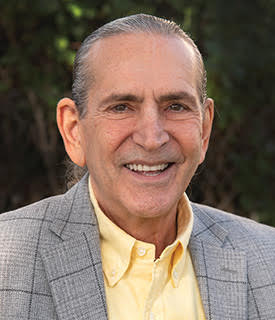Rejuvenating a Relationship
Rejuvenating a Relationship
In a long term relationship, it takes a lot of two sided effort to make it last. Any relationship will have its own fair share of ups and downs, but sometimes it’s the plateaus that are the hardest. Sometimes in a relationship we reach a point of complacency. Sure, there isn’t any drama, but the relationship might’ve lost its shine, its sparkle. Getting that back doesn’t happen overnight, but can still be ignited in an instant.
Get to Know Each Other
Over the years, people change. Life happens, our preferences develop, priorities might shift, habits are born or die. All these things can change who we are and affect our relationship with our significant other. One day you might wake up and realize the person you’re in a relationship with is different than the one you started of with. This doesn’t mean it’s a bad thing, as you probably changed too. What is important, is that you recognize these changes and take the time to stay in touch and get to know the person you are with, otherwise it can start to feel like you’re in a relationship with a stranger. Just like you keep in touch with a dear friend who might live away, keep in touch with your significant other. Notice when they do something new, be interested in their life, ask questions, and play an active not passive role in noticing even the smallest changes in their life, while also showing them the changes in yours.
Two Way Courting
Courting is not a phase of the beginning of a relationship, rather it can be a practice sustained for the duration of one. When you were courting, you probably tried to put your best foot forward and made an extra effort. Sure, courting was also exhausting. Courting does not need to be constant or grand, but it doesn’t need to be sparse or worse, extinct. What did you do when courting in those earlier days? Recognize that courting is not the responsibility of just one person. Maybe the early courtship days started off one-sided, but it does not need to be that way. You now have the advantage of knowing the preferences, likes, dislikes, and favorites of your loved one. When courting after many years together, there is less second guessing and you might be able to take more liberties and act with more confidence, knowing this is something your significant other appreciates and enjoys. Sometimes, you will find that courting can start a positive ripple effect. It might not seem like a big deal to do your hair or ask your spouse out on a date instead of saying, “hey I wanted to see the new movie,” but it can make a difference.
Get Help
Just like a car needs a tune up or you see your doctor for an annual checkup, your relationship may need a little outside help. There is no shame in seeing a marriage and family counselor. More people should take advantage of the wonderful opportunity to have professional help. This can be especially helpful if a relationship is struggling with a hardship. It can be beneficial in rejuvenating your relationship, to have a neutral third person that is non-judgmental and confidential.
If you’re around the San Diego area, please contact Crownview Medical Group to get in touch with a trained medical professional.
Be Happy: Finding Joy on a Budget
Finding Joy on a Budget
Money is not necessary to be happy. Although the thought, “if only I had more money for xyz, I could be happy” may cross our minds, it is not entirely true. Some of the wealthiest people in the world, who appear to have everything are unsatisfied with their life. Mental health issues plague the rich and poor. Money might be able to provide relief and indeed exciting times, but it isn’t necessary to be happy.
Know Your Needs
Yes, it is helpful to have your basic needs met such as clothing, food, and shelter when trying to seek happiness. Majority if not all the time, money is indeed needed for these basic necessities. Beyond those basic needs, it is helpful to know what are your personal needs to be happy. It could be a clean house, time with family or friends, time alone, being outdoors, being in a place with sunshine, connected spiritually, or a variety of things. Understanding what makes us tick and what makes us happy might be harder than it seems. Sure we can recognize when we feel happy, but might not be able to put in words what makes us happy. An activity that might help is to think of some of your most joyful and blissful moments in life. Once the moments are identifies, try to remember what were your life circumstances that surrounded that moment, who were you with, where were you, what job did you have, etc? Write them all down and try to see if there is a common thread amongst the different moments and surround circumstances. This might be a way for you to identify a theme of what brings you joy.
Removing Barriers
In addition to trying to add joy to your life, it is equally important to remove barriers that are preventing you from experiencing joy. Barriers can be toxic individuals, stressful situations, mental health issues, work, grief, or a major life transition. Some barriers are easier to overcome than others, but by identifying the barrier you can start to work on moving it, or moving around it with time and effort. Be gentle and forgiving with yourself, for sometimes the burden you carry are heavy and will take a significant amount of time to work through.
Get Creative
Once you know what triggers your joy and what holds it back, try to create an environment conducive to inviting your joy. Sometimes, small things can make a big difference in the way we feel. For example, taking on the project of cleaning out the garage together with a spouse can become a marital activity rather than a source of argument. Taking time to put a little effort in our outfit or appearance, might give us an extra boost of confidence. Spending some time writing a gratitude journal instead of coveting others and social media could also be rejuvenating. Getting creative and encouraging your happiness does not mean you need to fly to far off destinations, wear designer clothes, or live in luxurious mansions. For further support in processing and learning how to find greater happiness, seeking the help of a professional mental health counselor could be beneficial.
If you’re around the San Diego area, please contact Crownview Medical Group to get in touch with a trained medical professional.
Elderly and Substance Abuse
When thinking about who struggles with addiction, many overlook the possibility of substance abuse within the aging population. Addiction knows no age limits. No one is too young or too old to start. On the other hand, no one is too young or too old to stop. Each person starts or stops using for their own individual reasons, though there are some general trends as to what seniors use and why.
Why Elderly Use
For some senior citizens who use, the addiction is a continuance of a drug use that started in their youth, early, or mid adulthood and never resolved. For others, drug use began in their golden years, this is known as late onset drug use. There are many reasons why an older person might start using drugs later in life. With aging comes a new set of challenges and transitions such as: physical aches and pain, loss of loved ones and friends, financial hardship, and mental health issues.
For some seniors, coping with aches and pains that develop due to age might result in prescription painkillers. Although these drugs are prescribed, responsible drug use can easily get out of hand. For some individuals, who also struggle with memory loss, the start of a drug addiction may be innocent. The reasons for elderly drug use is often different than those of a younger age. Instead of seeking euphoria or a high, elders often are seeking to numb pain whether that be physical or emotional.
Dangers of Elder Drug Use
Although all drug use is dangerous, elder drug use comes with a set of specific challenges. Recognizing drug use in the aging might be more difficult to tease out, as symptoms of drug use such as memory loss, depression, weight loss, and health decline are generally regular amongst the elderly. In addition to being more difficult to recognize, elderly often are already prescribed medicine, which can be more complex and more dangerous when combining alcohol and drug use.
Seeking Help
Being that most of our seniors who struggle with addiction are seeking to self-medicate to cope with the physical and emotional pain, staying connected is important. As one ages, it tends to become a more isolating time of life. Life long partners and friends may depart, retirement means less social interaction with co-workers and peers, and aging sometimes makes it more difficult to be mobile and get out. Combating isolation and loneliness is difficult, but can make a difference in elder drug use.
By staying connected or making new connections, this can sometimes help with some of the emotional pain. Grief is a common emotion for anyone, young or old, to experience with the death of a loved one. Seeking a therapist or grief group can be helpful in coping with the painful struggles and loss when someone we care about passes away.
When trying to cope with physical pain, it is important to be open and honest with your doctors. Try to write down information from your doctor or bring someone you trust along to doctor appointments if memory is an issue. In addition to medicine, other treatments such as physical therapy, exercise, and nutrition might be helpful in coping with aches and pains.
[divider style="empty" margin_top="40px" margin_bottom="0px"]
[divider style="empty" margin_top="20px" margin_bottom="0px"]
Struggling with Substance Abuse?
Get in touch with a trained medical professional who can who can provide guidance.
[button color="black" custom_color="#ffffff" font_color="#000000" link="https://sandiegopsychiatrist.com/contact/"] Contact us[/button]
[divider style="empty" margin_top="60px" margin_bottom="0px"]
What is Harm Reduction?
History
The idea of Harm Reduction started in the early 90’s. Harm reduction programs such as needle exchanges is what really caught the public’s attention. In a needle exchange program, users could bring their used needles in exchange for new ones. The idea behind needle exchange and harm reduction is to meet the addiction on its level and try to make it safer.
The exchange program ensured proper disposal of used needles and prevented sharing needles and the spreading of disease. Although some viewed providing needles as encouraging the addiction, the principle behind a needle exchange program is to try and reduce the dangers and harm, such as HIV and Hep C, that accompany drug use.
The harm reduction approach is non-judgmental, aware of the difficulties of addiction, and tries to encourage a spectrum of safety. Today, harm reduction has grown beyond needle exchange programs and can be found throughout the nation.
Overdose Protection
All drug use is dangerous and has adverse health effects, but overdose of a drug can be deadly. With some drugs, such as heroine and other opiates, overdose can be prevented and even halted. Naloxone is an antidote to opiate overdose. Naloxone, also known as Narcan, or a Narcan pen can be bought over the counter in most states. First responders and even some lay people carry naloxone on their person. Some harm reduction programs encourage users of opiates to always have naloxone around when using, to prevent overdose and death.
Another intervention is the use of fentanyl test strips. Fentanyl test strips were originally used to test urine for drugs. However, users can now use fentanyl test strips to test if fentanyl is present in their heroine or even meth. Fentanyl has increasingly become more present in drugs and led to an increase of overdose over the years. The hope is that by testing drugs for fentanyl this will encourage users to not use the drug if it is present, or if they still use the drug to do so slower, with others present, or with naloxone at the ready.
Get Connected
Throughout the nation there are various organizations, non-profits, and groups that focus on harm reduction. Each harm reduction program offers resources and support to the people of their area and the prevalent needs. Although drug use is an issue, HIV, Hep C, and overdose does not need to be and can be minimized by safer use.
Indeed, abstinence and total recovery is the ideal, but it is important to meet the addiction “where it’s at.” Implementing any amount of safer practice is better than none. It is always best to find greater support from a professional substance abuse counselor that can provide further guidance and help individuals increase their safety and the safety of others.
[divider style="empty" margin_top="40px" margin_bottom="0px"]
[divider style="empty" margin_top="20px" margin_bottom="0px"]
Struggling with Substance Abuse?
Get in touch with a trained medical professional who can who can provide guidance.
[button color="black" custom_color="#ffffff" font_color="#000000" link="https://sandiegopsychiatrist.com/contact/"] Contact us[/button]
[divider style="empty" margin_top="60px" margin_bottom="0px"]
Source:
https://harmreduction.org/
Caregiver Fatigue
Whether you are a parent caring for young children, a child caring for elderly parents, a sibling caring for a disabled sibling, or a friend caring for a friend in recovery, chances are you will experience caregiver fatigue at some point in time, if not already.
Caregiver fatigue or burnout is when a caregiver experiences physical, mental, and/ or emotional exhaustion from not receiving the help needed to cope with the responsibilities of being a caregiver. Exhaustion can manifest in many way. Some caregivers develop anxiety or depression. Although being a caregiver is a noble and selfless duty, it is important to care for yourself.
Why Self-Care is Important
Many of us want to be strong and dependable caregivers. While some feel that being a caregiver is a privilege, it is also a duty. In order to be an adequate caregiver, the caregiver needs to be in a capacity to give care. This means that the caregiver needs to care for themself. It is important that we not neglect ourselves and prioritize self care, because keeping ourself healthy is being a good and responsible caregiver. When we neglect ourselves, it will affect our loved ones we care for.
Being a caregiver takes a tremendous amount of physical labor, energy, stress, patience, and attention. If you are tired or emotionally drained, it will be difficult to be patient with your parent suffering with Alzheimer's who asks you for the 20th time who ate their apple (they did). If physically exhausted, it will be difficult to run after young children or give them the physical play that they need.
Combating Caregiver Fatigue
The first step in combating fatigue is recognizing that you need help and need to be willing to receive it. Second, you probably need sleep. As a caregiver we might be reluctant to receive additional help for various reasons. Know that when someone says, “let me know if I can help” it does not always mean that the only way to help is to “babysit” or “parent-sit.” You can accept their help by saying, “Yes I could really use help with:”
- Help grocery shopping, here is a list
- Providing meals on these days
- Cleaning the house
- Doing the dishes
- Walking the dog
- Mowing the lawn
- Finding some resources
- Doing laundry
There are many ways others can help besides providing direct care. If you are comfortable with others providing direct care and it is appropriate, it could be helpful to create a schedule and schedule activities for yourself.
In the past, before you were a caregiver, you probably did not schedule when you would be able to shower, sleep, or eat. With the demands of being a caregiver, scheduling some of these basic needs may now be a necessity. It would also be helpful to schedule time for your emotional support by attending a group for caregivers, scheduling therapy sessions, or making time to meet with friends who you can talk with.
The demands and stress of being a caregiver can be great, if you start to notice a detriment in yourself with significant weight loss or gain, feelings of sadness or stress, shortness of patience, or lack of sleep, talking with a mental health professional could be helpful in caring for yourself and being a better caregiver.
[divider style="empty" margin_top="40px" margin_bottom="0px"]
[divider style="empty" margin_top="20px" margin_bottom="0px"]
Suffering from caregiver fatigue?
Get in touch with a trained medical professional who can who can provide guidance.
[button color="black" custom_color="#ffffff" font_color="#000000" link="https://sandiegopsychiatrist.com/contact/"] Contact us[/button]
[divider style="empty" margin_top="60px" margin_bottom="0px"]
Recovery and Eating Healthy
Recovery and Eating Healthy
Recovery means much more than quitting drugs, drinking, or smoking. Recovery means healing mentally, emotionally, and physically from the damage of substance abuse. Healing is a process that takes much more than just abstinence from a substance. The stoppage of using leaves a void that needs to be filled with positivity and health. A great replacement to substance abuse is eating healthy. Where you once drank a fruity cocktail (or five) at the end of the day, replace that with a fruity smoothie. Where you once smoked a pack of cigarette, replace that with a pack of carrots. Using consumed time, money, social interactions, and a physical aspect of grabbing something and putting it to your mouth, nose, vein. When you stop using, there is all of a sudden time, money, social interactions, and habits that are sitting around needing to be checked.
Filling the Void
Depending on your usage, the amount of time you spent using varies. The issue of time can be significantly apparent for smokers who were allotted a smoke break. Many workplaces will grant that same break for something else. You can use that break to eat a healthy snack that is quick and can satisfy the oral fixation. For others, using provided social interaction such as friends at the bar, instead you can try and make new friends at juice bars, smoothie stores, health food stores, or spend quality time with friends and family members who might have been neglected. Filling the void that substance abuse created is important, as many who used drugs, alcohol, and smoked are now dealing with the physical consequences of the substance abuse.
Consequences
It is no surprise that many health issues arise from substance abuse. Diabetes, high blood pressure, liver damage, significant weight loss and gain, memory damage, cancer, and many more health issues arise from substance abuse. Although some damage is permanent, eating healthy can help heal a lot of the damaged caused by substance abuse. It is important to reduce sugar, and eat wholesome meals regularly to help counter the damage done. Although it sounds simple to start eating healthy, this is a challenge that might be greater than it appears. When using, you probably did not eat as much (unless with marijuana use) and made poor meal choices based on convenience such as fast food, take out, and processed foods. Eating healthy takes effort, planning, and skill.
Get Help
Eating healthy is difficult for people who are not in recovery. You are not alone. Depending on the substance you are recovering from, it might affect your diet and what foods you need to eat or should avoid. Talking to a professional dietician, nutritionist, and working with a substance abuse counselor could help in identifying an appropriate and healthy diet that will strengthen your recovery.
If you’re in the Southern California region, please contact Crownview Medical Group to get in touch with a trained medical professional who can provide guidance.
Discovering Your Self Worth
Many think that self-esteem and self worth are the same thing and use the terms interchangeably. Self-esteem is the confidence that one has in themself, their personal perception of themself. Self worth exists whether or not you recognize it. Everyone has self worth, it is intrinsic, and when you come to discover and recognize that self worth, that is when you have self-esteem.
How to Find Your Worth
Your self worth is a treasure, buried within. It already exists, it was created when you were created. Just by being a human and being alive, you have worth. For some it is easier to discover and acknowledge their self worth than others. Some of us, may “know” we are of worth but have a difficult time acknowledging and accepting our worth. For others, it might seem like everyone who tells us of our worth is crazy and we are the only ones who cannot see it. Everyone will struggle at times to acknowledge our self worth because of various barriers.
Barriers to Your Discovery
What holds you back from discovering your self worth? Is your definition of worth too narrow and limited to finite things such as money, weight, education, cars, marriage, or praise? Having a narrow definition of worth is a major barrier. Remember that worth is not achieved, but discovered. It already exists within you, no matter who much money you make, how much you weigh, or how many degrees you have.
Trauma can also be a significant barrier. If you experienced a trauma, physical, emotional, sexual, or mental that left you feeling worthless this can be difficult to overcome. When someone treats us less than what we really are and fails to see our worth, sometimes we come to believe that we really are worthless. This is false. Your worth is not defined by others. Healing from trauma takes time and a mental health professional can help in the healing process.
Overcoming Barriers
Some ways to overcome your barriers that prevent you from seeing your self worth include surrounding yourself with those who can see your worth and excluding those who cannot see it. Cut out the toxic relationships and fill your space with those who see clearly and fill you with positive energy.
Fall in love with yourself. The same way you might court and date someone you are interested in, spend that time and energy on yourself. Treat yourself the way you would treat someone you admired and wanted to impress. This includes speaking to yourself nicely, treating yourself to fun, gifts, good food, and relaxation. Just like you would ask a date questions and observe things you like about that person, take time to discover who you are and what you admire about yourself. This could become a daily activity where you write down one or a few things you admire about yourself.
Talking to a medical professional has been very helpful for some. Sometimes you need to bounce thoughts off someone who could either act as a mirror to help you see things differently or provide guidance. Everyone has a unique story. Some people may need advice applicable to their unique situation.
If you’re in the Southern California region, please contact Crownview Medical Group to get in touch with a trained medical professional who can provide guidance.
[divider style="empty" margin_top="40px" margin_bottom="0px"]
[divider style="empty" margin_top="20px" margin_bottom="0px"]
Struggling with self worth?
Get in touch with a trained medical professional who can can provide guidance.
[button color="black" custom_color="#ffffff" font_color="#000000" link="https://sandiegopsychiatrist.com/contact/"] Contact us[/button]
[divider style="empty" margin_top="60px" margin_bottom="0px"]
Recovery Pride
There are some who are in recovery who wear their recovery badge on their sleeve with pride. Others, are embarrassed to be in recovery for various reasons. Some might feel ashamed to be in recovery because of the stigma associated with addiction, others might feel shame when associating with friends or family who still use. Finding the confidence to be proud of one’s recovery journey takes work, time, support, failure, and successes.
Shame
Shame can be one of the greatest barriers to success. When we experience shame, it makes us feel isolated, dark, and hinders progress. It is not uncommon for those who are just starting on the recovery journey to receive backlash from friends and families who use. Some friends and family members may say, “do you think you are too good to drink/ smoke/ use with us?” This social confrontation and peer pressure to use can be a huge source of shame.
Others might feel shame in situations that might seem harmless. For example, at a company party where alcohol is served, a friendly co-worker might offer a drink and you feel ashamed to turn down the drink and disclose that you are in recovery. It might also feel uncomfortable to tell your doctor or dentist of your substance abuse history if they give you pain medication that could jeopardize your recovery. These are all common situations where shame might creep in and try to grow.
Dispelling Shame with Pride
Learning how to combat feelings of shame and instead letting seeds of pride grow is beneficial for one’s recovery. Being proud of your recovery journey does not mean that the entire world needs to know your history, dark secrets, and every update in your recovery process. Everyone has different levels of comfort when it comes to sharing their recovery journey. Thus, there are many ways to be tactful, yet proud of your progress.
The term, “power in numbers” applies very well to finding confidence in one’s recovery. Associating with others who are proud of their progress, proud of your progress, support your values and goals, and have beliefs that are aligned with yours will help foster a greater sense of pride and confidence.
This might mean that you need to evaluate where and who you spend your time with.
Reducing time with toxic, shame spitting people and increasing time with supportive ones could be helpful. Sometimes we cannot completely remove all toxic people, especially if they are family. Taking a supportive person with you during those visits or having a momento that you can hold onto and reminds you of your greater purpose and motivation for recovery could give you an extra boost of strength during those confrontational times.
In other situations such as a company party where alcohol is served, you can decline to drink without telling your whole story. Remember, there is a whole world out there with millions of people who do not drink or use drugs due to health, religion, allergies, and personal choice. To reduce feelings of anxiety and feeling caught off guard, you could role play different ways to decline a substance or how to disclose in a discrete way your substance abuse history.
Working with a professional substance abuse counselor could be helpful in overcoming barriers, gaining support, and growing your pride and confidence in your recovery. If you’re in the Southern California region, please contact Crownview Medical Group to get in touch with a trained medical professional who can provide guidance.
Recovery: Beware of the Holidays
There are holidays year round, but especially in the late fall and winter months, there tends to be extra celebrating and cheer. Relapse is not the first thing that comes to mind when thinking of the holiday season; though, the holiday season can be a major challenge for those in recovery. Here are some of the many reasons why this time of celebration can be such a challenging time and how to cope.
Extra Merry Making
During the holiday season, many celebrate with gatherings, parties, eating special foods, and drinking special drinks. Alcohol is often not only present at parties, but free. For a recovering alcoholic, it can be tremendously difficult to have to say no all night long while at a holiday party. It can also be embarrassing if you feel like you have to explain why you aren’t drinking. There is added pressure to drink when it seems like you are the only one not drinking. Being the sole sober person can also be an isolating feeling.
If in recovery and know you’re going to a party or gathering, be prepared. Bring a supportive family or friend who will not only be entertaining company, but is also willing to stay sober with you and encourage you to keep your goals. In advance, you can think of alternative responses if someone asks why you’re not drinking, and you feel uncomfortable with admitting that you’re in recovery. Recovering alcoholics are not the only people who are sober. Many people abstain from alcohol due to health reasons, they don’t like the taste, New Year’s resolutions, religion, designated driver, or work the next day. If hosting, prepare a variety of non-alcoholic drinks such as mocktails, holiday drinks such as egg nog, wassail, sparkling cider, coffee, or hot cocoa.
Stress
The holiday season can also be a time of great stress. It takes a lot of energy, organization, and money to gather with family, buy presents, decorate, and coordinate gatherings. For some, when families get together, drama tends to stir. It can be exhausting to host out of town guests and feel the constant need to care for and entertain them. On top of all of this, you probably still have your regular duties such as work, taking care of your immediate family, and general household upkeep. The added holiday stress might trigger a desire for an upper to help keep up with the hustle and bustle or a downer to escape it all.
As much as possible try to plan in advance and get organized. There are many organization apps available that can help you manage holiday shopping lists, budget, to-do lists, and grocery lists. Setting boundaries with your family and friends can also help to reduce the family drama. Limit your interactions with the family members that drive you crazy. Sometimes adding some structure to family get togethers can help cut back on the down time for gossip and nagging, and instead help to create more positive memories. Plan a service project, play some games, or give everyone a task so that everyone can contribute. If finances are a stressor, families can do a secret santa or white elephant so you don’t need to buy a gift for everyone. You can also give family gifts instead of gifts for each member of that family, and that gift can be homemade.
Grief
As mentioned, the holiday season is often spent with family and friends. So, when a loved one passes away, the holiday season can magnify their absence. Many, struggle to cope with feelings of grief and loss during the holiday season. For someone in recovery, this may be a trigger to relapse if these feelings become too overwhelming and painful.
Instead of focusing on the absence of a loved one, focus on remembering and honoring the life of that loved one. Continue a tradition that was done together, light a candle in their honor, do an act of service in their remembrance, or spend time doing some of their favorite things. It may be helpful to turn to family and friends who are also grieving.
Seeking Help
No matter the situation or reason for struggle, meeting with a mental health professional can be of great assistance. If you know the holiday season is particularly challenging, schedule in advance or schedule extra meetings with your mental health counselor. If you’re in the Southern California region, please contact Crownview Medical Group to get in touch with a trained medical professional.
Cravings for Past Addictive Substances
Cravings are not limited to food and pregnant women. Anyone can have cravings and it is possible to have cravings for past addictive substances. Having a craving doesn’t diminish someone’s progress, nor does it signify weakness. They are common and temporary. Many in recovery will struggle with cravings, but it doesn’t need to last forever and there are ways to manage them.
Intensity Levels
The intensity of the cravings can vary from person to person. They may manifest at a low level such as vivid dreams, intrusive thoughts about the substance, or thinking about positive memories and positive feelings of using. Higher level cravings may include selective memory where you only remember the positive aspects of using and forget about the pain that it caused or negative impact it had on your life, you might experience actual hunger for the drug, and may go as far as starting to plan how to obtain the substance.
Coping With Cravings for Addictive Substances
Remember that cravings are not permanent, even if they are intense. Giving into a craving strengthens it, while riding it out weakens it. There are many ways to ride out a craving.
- If you delay the craving long enough it will go away and weaken. Sometimes, delaying can be extremely difficult. Distracting yourself from the craving can help make delaying more bearable. There are many ways to distract yourself, find what is most helpful for you.
- Another way to help cope is play out what would happen if you gave into the craving. Do so with an honest mind and if you are struggling to be honest, talk to someone who can remind you of the pain and struggle the addiction caused. You can write a letter to yourself that you can read and that reminds you of the negative consequences giving into addiction caused.
- Some individuals create a self soothing kit, which can be helpful for those that physically feel cravings. Put a kit together of things that soothe you. The kit can be as large or small as you want. Some kits might include pleasant smelling things such as lavender, a little bit of chocolate, relaxing lotion, a face mask, massage stick, pictures of loved ones, and notes of encouragement.
Cravings vs. Withdrawal
While cravings can be postponed and are fleeting, withdrawal is more serious. If you recently gave up alcohol or other drugs, indeed you might have cravings, but your body could also be going through withdrawal. Withdrawal can be dangerous and even lethal for some. It is important to consult with a mental health professional and a medical professional when starting the recovery process.
Behavioral Activation: Scheduling Out Depression
Behavioral Activation is a technique sometimes used to help treat depression. Just as feelings can influence our behaviors, our behaviors can sometimes influence the way we feel. Depression is a vicious cycle, when feeling depressed many tend to isolate themselves and withdraw from things that once gave them pleasure. Being isolated and withdrawn often encourages the depression to fester and grow. Behavioral Activation helps one to identify activities in the day that increase or decrease depression and also helps to schedule more activities that will help decrease depression.
How to Use Behavioral Activation to Treat Depression
Before you can start assessing your current life and scheduling your activities, it is helpful to identify your values and goals. What kind of person do you want to be? When scheduling activities, it is important that the activities actually help you progress to what you want to become.
Assessing Your Life Situation
Assessing your current life situation can be helpful in identifying which activities in your life encourage the depression or combat it. Eventually you would want to replace the negative activities that increase the depression with healthy activities that will help you achieve your goal. One way to assess your current activities would be to write down your entire day from the moment you wake up till you go to sleep, hour by hour. Next to each hour of the day, track the way you feel on a scale of 1-10, 1 being most depressed, 10 being happy and your best self.
Scheduling Activities
Once your goals and values are set, you know what you want to become, and you are aware of the behaviors that bring your down, try to schedule in activities that will help you achieve your goals and that bring you satisfaction. It might be helpful to have a range of activities that are easy to accomplish and others that might take more effort. For example, if you have a goal to be more creative, looking out the window and identifying five inspiring things might be easier to do than attending a ceramics class. It is important when scheduling your activities that the activities are feasible and realistic. Easing into the activities, and starting small could also help when first trying Behavioral Activation. Sometimes when the activities are too difficult or not feasible, it can be discouraging and have a reverse effect.
Be Accountable
Although doing Behavioral Activation is possible to do on your own, it is often more effective when held accountable. One of the ways depression manifests itself is not completing tasks and lack of motivation. Thus, it could be very helpful to have someone who can help motivate and provide encouragement. Seeking a mental health professional who is experienced with Behavioral Activation can also help your experience to be more effective. There are a variety of scheduling worksheets and information on how to incorporate Behavioral Activation into your life.
Sources:
https://www.div12.org/treatment/behavioral-activation-for-depression/
https://medicine.umich.edu/sites/default/files/content/downloads/Behavioral-Activation-for-Depression.pdf
Spirituality a Strength
Whether it is mental health, substance abuse, suicide, or general health and wellness, spirituality can be a strength and protective factor. Spirituality and religion are similar, but can be different things depending on the person. For some they may be religious but lack a spiritual connection, some may be deeply spiritual and not affiliate with any specific religion, while some are both committed to a religion and deeply spiritually connected. Either way, there are many benefits of being spiritual and/ or religious, no matter the religion.
Meaning of Spirituality
Spirituality, whether practiced at a synagogue, mosque, church, on a mountain top, or in your living room, often provides someone with understanding and meaning in life. Spirituality can help one to gain a greater perspective and increased insight on life, how to cope with challenges, and set meaningful life goals. Those who are spiritual sometimes practice prayer or meditation, which can also be viewed as practicing mindfulness.
Social Support
Another strength of spirituality is that it often connects you to a social network. Finding common belief with others can help provide not only emotional support, but may be connected to other resources. Some religions offer free counseling, provide financial support, or free activities that are engaging and promote a healthy lifestyle.
Whether formal or informal, it can be helpful to talk to others who understand you, have empathy, have similar goals, and may be experiencing similar struggles. Often places of worship are great ways to make healthy friendships and get connected to a community.
Coping
Spirituality and religion can help individuals cope with many different things. If it is substance abuse, some religions have specific resources set aside for substance abuse assistance. Some run 12-step groups for addiction management. It is not uncommon to find that an Alcoholics Anonymous group is hosted at a church or other religious site.
Religious groups can also help individuals struggling to cope with grief and loss. Some spiritual leaders can provide professional or unprofessional counseling.
Seeking Additional Help
Although spirituality and religion can be a protective factor and a strength, it may not always be an absolute solution. For substance abuse, mental health, and physical health issues, it is still important to connect with a professional.
In some situations professional mental health counseling and/ or medication is necessary. If you’re in the Southern California region, please contact Crownview Medical Group to get in touch with a trained medical professional.
Domestic Violence: Why They Stay
If you are a survivor of domestic violence or know someone who is in a domestic violent relationship you might wondered, “Why do I/ they stay in this toxic relationship?” From the outside looking in, it is easy to say, “get out, just leave, don’t go back.” However, the situation is more complex than it seems when in a psychological prison.
The Cycle of Domestic Violence
Often in relationships where domestic violence is an issue, there is a cycle that repeats over and over again. Depending on the relationship, the cycle can take days, weeks, or months. The three phases of the cycle are:
- Tension Building – Verbal abuse may begin, the victim feels like walking on eggshells, victim may try to keep the abuser calm, eventually the situation escalates.
- Explosion – Physical, mental, emotional, and/or sexual abuse begins. The explosion can be unpredictable and triggered by anything.
- Honeymoon – During this phase, the abuser may try to apologize, justify, deny, or downplay the abuse. Abuser may make promises that the abuse will never happen again, explain that they will change, or try to give gifts to make amends. The victim may believe the abuser and may be convinced that it is not necessary to leave the abusive relationship.
Why Leaving Is Difficult
There are many reasons that it could be difficult for an individual in an abusive relationship to leave. Domestic violence is often about power and control, meaning the abuser will often control the money, transportation, resources, and communication with others. It may be that the victim has no resources to leave, nowhere to go, and no one to call for help.
If children are involved, the abuser may threaten to harm the children or threaten to never allow the victim to see the children if the victim leaves. The victim may also be afraid of embarrassment, in some cultures, families, religions, and communities leaving a marriage is frowned upon. The victim may also be afraid of further abuse or even death if caught leaving.
Available Resources
There are many internet resources available. In addition, victims can call the National Domestic Violence Hotline for assistance. Some states have safe houses that are secret and safe. Often these safe houses or shelters are equipped with clothing, food, hygiene products and trained staff to help victims get established. Connecting and engaging with healthy and supportive friends and family could also provide you with more resources to leave.The National Domestic Violence Hotline also can provide information about resources specific to your state.
Healing
Coming out of a relationship with an abusive partner takes time to heal. Some victims go back to their abusers, some struggle to identify their self-worth, and many continue to live in fear. Once safe, seek out a mental health professional who can assist in learning how to cognitively and emotionally heal from the abuse. If you are in a the southern California area, contact Crownview Medical Group to get in touch with a trained medical professional who can offer some guidance.
Benefits of being grateful
Actively exercising the art of gratitude may have more benefits than one realizes. Expressing thanks to others, being grateful for specific things, or holding a general sense of gratitude within can impact one’s emotional and mental health in addition to relationships with others.
Gratitude and Health
The practice of being grateful can physically affect your health. Patients with heart failure who kept a gratitude journal were able to reduce symptoms associated with their illness.
These individuals were able to sleep better, experienced an improved mood, and reduced inflammation. Gratitude can also help us combat feelings of depression, encourage feelings of optimism, strengthen self confidence, and even reduce stress.
Improving Relationships
When expressing thanks to others it can help open doors for communication. Expressing our appreciation not only helps others to feel loved, validated, and recognized, but it also helps us to realize and be mindful of the good others do in our lives.
When we can recognize others’ good deeds and how they contribute to our life satisfaction, we too can feel loved, noticed, and cared for. Expressing appreciation can help mend relationships and invite a sense of security, allowing each other to let our walls down and be honest with one another.
Giving thanks to others is something proactive we can do to maintain and nourish a healthy and long lasting relationship.
Gratitude and Perspective
Having a grateful eye and heart is similar to developing a new muscle. If we are out of practice, it might seem difficult to find things to be grateful for. It takes practices to learn how to adjust our perspective and open our eyes to the many opportunities we have to give thanks.
When someone cuts us off while driving, it is easy to shake our fists to the sky and curse upon that driver. Instead, we could think, “I’m so glad I didn’t get hit by that driver, thank goodness my car wasn’t scratched, there wasn’t an accident, and I don’t need to pull over and deal with car insurance.”
In times when it seems impossible to be grateful, it is ok to just leave space open and be grateful for simple things like the fact that you’re alive, have air to breathe, and a sun that shines.
How to Be Grateful
Indeed, being grateful can be as simple as sitting down and thinking about all the things we are grateful for. There are many creative ways to express gratitude and a variety of ways to spice it up, encouraging you to look for new things and avoid getting into a repetitive cycle of being mindlessly grateful for the same things over and over again.
Some gratitude exercises are:
- Develop Gratitude Categories: Come up with different categories to focus on for the day or week. For example, for a week be grateful for different things in nature or focus on being grateful for people at work.
- Begin and End Your Day with Gratitude: Begin your day with thanksgiving for the things you are looking forward to, end your day with thanks for the things you experienced that day.
- Write Thank You Cards: It could be fun to write thank you cards and mail them, even if you are mailing it back to your own house to your spouse or children.
- Keep a Daily Gratitude Journal: Keep a pocket sized notebook as a running daily gratitude journal. You can write in it at a specific time of the day or as soon as there is something to be grateful for.
- Express Gratitude to Random Contacts: Scroll through your contacts and pick a random name, express gratitude to that person.
Although practicing gratitude has many health benefits and is a positive healthy practice, it should not replace therapy. Gratitude exercises may be a part of therapeutic activities; nevertheless, it is always best to see a professional mental health counselor to cope with mental health issues.
Fears
Everyone experiences the emotion fear. It is completely natural and human to be afraid at times and have life fears. For some, fear can become so great as to start impairing daily functioning, causing loss of sleep, affecting work, relationships, and our ability to face the day-to-day nuances of life.
Why Am I Afraid?
There can be many reasons why someone would experience fear consistently and to the point that it impairs or affects functioning. Some possible reasons could include:
- Trauma: Experiencing a traumatic physical or emotional event can cause haunting memories leaving a lingering fear that the past could repeat itself. It is common to ruminate and to be afraid of situations, people, or places that are similar to the traumatic event. If someone almost died in a horrible car accident, it would be natural to be afraid to drive again.
- Mental Health Issues: With anxiety, obsessive compulsive disorder, or phobia, fear can be a large component of the issue at hand.
- Anxiety: With anxiety, the fear may manifest in a persistent sense of worry or fear that something could happen.
- OCD: For those who struggle with obsessive compulsive disorder they may have specific “rituals” that they feel compelled to perform. Sometimes individuals feel compelled to perform the ritual out of fear that something bad will happen or a fear of being immoral if they do not perform the ritual. Examples of some rituals and fears could be, washing hands in fear of infectious diseases, checking door locks multiple times in fear of someone breaking in, or praying constantly in fear of not being sinful.
- Phobia: Phobia is a fear of something specific. Often this fear is irrational, extreme, and greater than average or general fears. A phobia can be so great as to cause someone to go to great lengths to avoid encountering the fear.
How Can Therapy Help
When it comes to facing one’s fears, therapy can be very beneficial. There are multiple therapy modalities that can address the core issues of the fear and bring about positive results. In therapy you can learn how to cope with feelings of fear through activities such as mindfulness and relaxation.
A therapist can help you to logically examine your thoughts and help you to see what is rational and irrational. When we learn how to reframe our thoughts, we can gain a better perspective and feel empowered in accepting our fears, but not letting them overwhelm us.
Depending on the fear, some therapists can help expose you to the fear and be there with you to work through the emotion, coping with you, talking you through the experience, and guide you through your fear in a controlled environment.
American Psychiatric Association. (2013). Diagnostic and statistical manual of mental disorders (5th ed.). Arlington, VA: American Psychiatric Publishing.
Chronic Stress
Stress is an unpleasant emotion that everyone dislikes. At times our stress can become so overwhelming it causes us to feel immobile, defeated, and completely helpless. Everyone experiences stress, and a little bit of stress might be helpful in getting us to take action or motivate us. Persistent or chronic stress, on the other hand, can be extremely unhealthy.
Chronic Stress and Your Health
When someone experiences high levels of stress persistently and for long periods of time, the effects of the stress can be significantly damaging. Chronic stress can cause anxiety, insomnia, weakened immune system, obesity, high blood pressure, muscle pain, heart disease, depression, and suicide to name a few. If you are experiencing persistent chronic stress, it is time to lessen your burden.
How do People Cope with Stress?
For some the source of stress is a specific situation, behavior, person, or lifestyle. Take some time to identify the cause of your stress. There are many effective mental activities and things you can do to cope with stress, but it is often best to address the stress inducing circumstance itself.
If you have a stressful job, consider adjusting your hours, speak with your employer, or even consider a career shift. A specific person or relationship might be causing immense stress, you can work on the relationship, go to therapy with the person, have an intervention, or maybe consider creating some distance, and drawing healthy boundaries with that individual.
Although changing your lifestyle and circumstances might be the ideal, it may not be possible to completely make a circumstantial change. Many of us would love to quit our jobs, never work a day again, and live a carefree life on the beach in Bali; but, our reality is food needs to be put on the table and clothes on our back.
5 Ways to Reduce Chronic Stress
Indeed, make as many adjustments to your circumstance as possible. In addition, prepare yourself physically, mentally, emotionally, and spiritually to cope with chronic stress. If you know that you are going into a stressful day, armor yourself ready for stress battle. A few things you can do to reduce chronic stress are:
- Sleep well: go to sleep at a regular time, try to get eight hours of uninterrupted high quality sleep. Wake up at the same time daily and have both a night and morning routine.
- Connect spiritually: for many having some kind of spiritual connection can be empowering. Spirituality isn’t limited to going to a church or monastery. Take time to understand what being spiritual is for you.
- Be Well: take care of your body. Many of us stress eat, leading to weight gain, more stress, and more eating. Exercise is a great way to express your stress and help you to feel good about yourself. Eating well can also help you to feel energized and more equipped to face your challenges.
- Connect with Others: surround yourself with supportive people who can help you bare your burdens, or at the very least help you feel understood.
- Professional Help: a professional mental health counselor can also be a beneficial resources that can further help you in your specific circumstance. A therapist can give you new tools and help you to gain greater insight into your situation to find a solution.
Source
http://www.apa.org/helpcenter/understanding-chronic-stress.aspx
Understanding Suicide and Finding Help
Everyone at some point in their life goes through difficult and trying times. Feeling overwhelmed, lonely, and hopeless are emotions that we all experience. During dark and distressing times, many will have the thought, “It would be so much easier if I just wasn’t around anymore.” Some may even begin to think of ways to end their life. Suicide, however, isn’t so much about wanting to die, but rather wanting to escape something, whether that be a toxic relationship, financial burden, stress, trauma, getting bullied, or a difficult situation. It’s important to recognize that there is more than one exit out.
Finding Your Exit
Death is final. There is no taking it back and it will impact more people that one truly realizes. Although in our darkest moments, it seems virtually impossible to find a solution or imagine that things will get better, remember that you always have a choice. Sometimes, our perspectives are so hindered by our plight, we need another set of fresh eyes to help us see other options or other exits out of our dark abyss.
Asking for Help When Feeling Suicidal
Reaching out and asking for help can be intimidating and uncomfortable. Talk to someone you trust and cares about you, someone who you truly believe will keep safe your most vulnerable feelings. You might be surprised how relieving it can be to leave the bricks of our sorrows at the feet of another. Allowing someone to help us carry our burdens can lift you up and give you the strength to trudge through your journey.
Someone always cares, your life matters to someone. Even if there is no one you can imagine at this very moment, think about people from your past or think about the potential relationships you might have in the future. Everyone has something to offer and everyone has worth.
Thinking About Suicide? Seek Professional Help!
It is always a responsible and healthy choice to seek professional help from a mental health counselor. Engaging in consistent therapy with a professional can be helpful and lifesaving. Your sessions are legally confidential. If worried about the cost of therapy, check with your health insurance provider. Many health insurances provide mental health benefits and some therapists bill on a sliding scale to accommodate most financial situations. There may also be free therapy resources available through local universities or non-profit agencies.
Dealing with Social Anxiety
Clammy hands, a racing heart, thoughts spinning out of control, worrying about what others are thinking about you-- these could be a few symptoms of social anxiety. Unless you are a natural born casanova, odds are, you probably experienced social anxiety in some way or form. It could be triggered by going to a new school for the first time, attending a meeting with persons of great importance, or a large party with a big crowd. There are many situations where social anxiety can present itself and many different ways a person can experience it.
Social Anxiety Holding Me Back
There is a difference between not being a “people person” and genuinely suffering with social anxiety. The easiest way to make that determination is to reflect on the functionality of one’s life. Indeed, you might feel discomfort in social settings; but, does it hold you back? Do you find yourself going out of your way to to avoid social activities to the point that it’s starting to impact your life? Struggles with social anxiety can sit on a spectrum. For some social anxiety goes as far as becoming reclusive, losing jobs, skipping school, and total lack of relationships with others. This lifestyle can be isolating and lonely. Many may wish things were different and crave connection, but are simply too afraid, nervous, or anxious to get out and satisfy that desire.
Be Your First Friend
Often the source of the anxiety is a lot of negative self-talk and forecasting the social interactions to come. A great place to start is to be your own best friend. Examine those negative thoughts and fears and question them. A common fear is being afraid that others will judge us. To that, ask yourself, “Am I a mind reader?” Am I psychic? Do I genuinely possess the ability to know what other people will or are thinking about me?” Your answer is probably, “NO.” Recognize that all the thoughts running in your head about what other people are going to think about you aren’t real thoughts from other people. Those thoughts are YOUR thoughts.
We can take this a step further. Let’s say your negative, worst case scenario actually does pan out in real life. How would the impact you? How could you recover from it? Will the world stop or continue spinning? How would your life continue on? It may be challenging to argue with yourself and answer some of these questions with a positive mindset, but the reward of connecting and discovering the social interaction that you need is so worth it.
Practice Makes Perfect
“Practice makes perfect” holds true in this situation as well. The more positive social opportunities and experiences you have, the greater your confidence will become, and the better you will become at socializing. Making conversation is a gift some have, but a skill that can be acquired. Practice talking with someone you do feel comfortable with. Make a friendly phone call. Go to the closest Starbucks and try to strike up a random conversation. Stay at that party 15 minutes longer than you wanted to.
Expect that there will be awkward moments, but be kind and forgiving to your trying self. Encourage yourself to be resilient. Get to know who you are and what you have to offer. You may be the friend that some nervous person may need.
Seeking Help for Social Anxiety
Social anxiety, again, can be a spectrum of symptoms and manifest itself in many different ways. If it is a concern and especially if it leads to feelings of depression, affecting one's ability to function, and induces thoughts to harm oneself, seek professional mental health assistance/ counseling. The National Suicide Prevention Hotline is available 24/7 and always just a phone call away for anyone who may have thoughts of suicide. You can reach them at 1-800-273-8255.
Nightmares
Just about every one of us has experienced some form of nightmare in their life. It’s never enjoyable to fall asleep after a long day of stress and work, only to be chased by a psycho killer in your dreams. There are many contributing factors that can influence our dreams. Nightmares can be very common with children and individuals who experienced a traumatic event. The severity and frequency of nightmares can vary from person to person.
Set Yourself Up For Sweet Dreams
You might have discovered that sometimes if you bumped into a friend at the grocery store, the same friend appears in your dreams later on. Or, if you were watching a movie set in Tokyo, Japan your dreams take place in a similar setting. Sometimes our daily activities and things we were thinking about right before bed can seemingly slip from our consciousness into our unconsciousness. Though this phenomenon is often unintentional, you can use it to your advantage to try and influence positive dreams.
Avoid watching scary movies right before bed, switch up your night time routine and fill it with good vibes, positivity, and happy thoughts. Think about things that you would want to dream about. It might also be helpful to listen to soothing music, nature sounds, or even white noise to drown out any loud noises or surprises that might make its way into your dream. For example, thunder or a slamming door might turn into a gunshot or Godzilla stomping around in your dreams.
Change Your Dream
If to no avail, you still had a bad dream, another technique is to wake up and change your dream. Once you wake yourself up, start thinking about an alternative ending. Is Freddy Krueger cornering you about to cut you with his talons? No worries, wake up and imagine Superman flying in and throwing that monster to outer space, then later taking you out to brunch. Once you give your dream some guidance, it can then grown and blossom into something much more enjoyable.
PTSD Nightmares
A common symptom of Post Traumatic Stress Disorder (PTSD) is nightmares. Those who experienced a traumatic event such as an attack, car accident, assault, abuse, or witnessed something horrific, might relive the trauma in their dreams. Recurring nightmares and reliving the incident while sleeping can be distressing and cause even greater anxiety in fear of going to sleep.
Why Seek Help
If nightmares are persistent, affecting your waking hours, or if you feel anxious to go to bed in fear of having a nightmare-- seek professional help. The nightmare may be a reflection of something unresolved in your waking life. Lack of proper sleep will only magnify and worsen the issues that you may be struggling with. A mental health professional can assist you in finding peace. You might also consider consulting with a physician regarding medication that can assist with sleep and even nightmares.
Coming home from war - PTSD
Coming Home from War
After serving in the military, many look forward to coming home or having their loved ones come home. We might think that homecoming is filled with happy reunions, enjoying the things you loved and missed, and finally settling back into “normal life.” For some, this is true. Some of our veterans are able to adjust back into civilian life quite smoothly, but many will face some kind of difficulty with the transition. PTSD or Post Traumatic Stress Disorder usually occurs after one experiences some kind of trauma.
PTSD Statistics
PTSD isn’t limited to only veterans, but anyone who experiences any kind of trauma can experience PTSD. In addition, not everyone who experiences a “trauma” has PTSD. As individuals we all react, interpret, experience, and cope with trauma differently. Even the statistics of veterans who struggled with PTSD varies by tour, according to the US Department of Veteran Affairs:
- Operations Iraqi Freedom (OIF) and Enduring Freedom (OEF): About 11-20 out of every 100 Veterans (or between 11-20%) have PTSD in a given year.
- Gulf War (Desert Storm): About 12 out of every 100 Gulf War Veterans (or 12%) have PTSD in a given year.
- Vietnam War: About 15 out of every 100 Vietnam Veterans (or 15%) were currently diagnosed with PTSD at the time of the most recent study in the late 1980s, the National Vietnam Veterans Readjustment Study (NVVRS). It is estimated that about 30 out of every 100 (or 30%) of Vietnam Veterans have had PTSD in their lifetime.
What Does PTSD Look Like?
PTSD can manifest itself in many different forms and be specific to the trauma and individual. Common symptoms amongst our veterans include, but are not limited to
- Reliving the Event: Nightmares or flashbacks about the event.
- Avoiding Situations: Avoiding crowds, conversations, or even help that might make you talk about the traumatic event or remind of the situation.
- Negative Changes in Beliefs: Increased skepticism, lack of trust with others, and even distancing self from loved ones.
- Hyperarousal: Sensitivity to loud sounds such as doors slamming, fireworks. Wanting to sit in a corner in a room or restaurant to avoid surprises from behind and to surveillance all the entrances.
How to Get Help
Although it can be nerve-racking and stressful to think about getting help and having to address the ghosts from past tours, seeking professional help can greatly assist in getting back your life. New therapeutic techniques and advance technologies have been developed to help veterans specifically with their PTSD. Some might feel embarrassed or associate seeking help as a form of weakness, know that you’re not alone. Many struggle with PTSD as displayed by the statistics.
If you or a loved one struggles with symptoms of PTSD, please contact Crownview Medical Group to get in touch with a trained medical professional who can help based on individual needs.
Setting boundaries with family
Everyone has a different family. Family dynamics can sometimes be the most difficult thing to adjust to when getting married or raising children. Depending on the type of family you come from and the way you’re raised, setting boundaries may be something you really need - at the same time it could be something extremely difficult to do.
The intent of this article is not to tell you what you need to set boundaries on and who you need to set boundaries with. Rather, the hope is that you can gain insight in how to set boundaries to better support your own personal and familial values and goals.
Types of Boundaries
Dr. Salvador Minuchin, a psychiatrist, developed a modality of family therapy called, Structural Family Therapy in the 1960’s. Setting boundaries is part of Minuchin’s family therapy structure. A family can have different types of boundaries: diffused, permeable, and rigid.
- Families with diffused boundaries are likely to be enmeshed. Boundaries are not clear or visible.
- Rigid boundaries are indeed visible and clear cut, but do not allow for much interaction or flexibility. This can lead to a disengaged family.
- Permeable boundaries, which is the ideal, are clear, but also allow for interaction, flexibility, and adjustment to different situations.
Setting Boundaries
Depending on culture, family structure, values, religion, and personal preferences this determines what you would like to set boundaries on. Communication is key.
Approaching this as a team player, rather than a dictator is helpful in finding boundaries that works for all. Begin by identifying what are you family values. What is important to the family? What threatens your family values and what can the family do to protect these values? Discussing and answering these questions can assist the family in not only identifying appropriate boundaries, but understanding why the boundaries exist in the first place. Total, united, family buy-in with the boundaries set is effective in maintaining them and having an engaged healthy family.
Outside Help
In some family situations, setting boundaries can be extremely difficult and even lead to hostility. Common situations that make the process complex can sometimes exist with new blended families, after separation of parents, families with members who struggle with addiction, families where physical, mental, sexual abuse has occured, or families with mental health concerns. This is not a limited list, sometimes setting boundaries is just plain ole difficult and it could be helpful to have a mediator. Seeking family therapy with a professional can help provide structure, guidance, and clarity in pursuing your family goals.
If you are interested in discussing boundaries with a professional, please contact Crownview Medical Group.
Social Media Envy
There are many positive aspects to social media. Indeed, it is a wonderful way to stay connected with family and friends, some have met their soulmate through dating apps, it can be used to bring communities together for a good cause, share information, and a place of support.
Many of us who use social media may also be very familiar with a term called “social media envy.” You know this feeling. You feel it when scrolling through your feed and you see Rebecca skiing down the pristine Swiss Alps with her saucy French boyfriend who is also a Neurosurgeon with a six-pack. Of course you see this post at 10pm when you just came home from a long day of work at the job you hate and you can’t remember the last time you had a day off.
You might feel this social media envy when you see 13 BILLION people congratulating Tommy for his stellar job promotion, or when you see the super delicious dinner that John cooked with his 3 amazing piano prodigy children. No matter who you are or who you follow, chances are you’ve felt at least a grain of social media envy at some point.
What is Social Media Envy
Tai et al (2012) defines envy as, “pain at another’s good fortune.” While there are many emotions similar to envy, jealousy is probably one of the most similar ones.
Smith and Kim (2007) differentiate that envy occurs when someone else has something we long for or want; and jealousy being fear of the loss of something we already have to someone else. An envious lover would be one that wants a different partner, while a jealous lover would be afraid of anyone taking their significant loved one.
Envy can lead to many negative emotions. Envy can become aggressive, volatile, and hostile (Schoeck et al., 1969, Smith & Kim, 2007). Envy can also affect our mental health and lead to symptoms of depression (Tandoc Jr. et al., 2015).
Envy and Depression
There are many studies about social media that have mixed findings regarding the relationship between social media and depression. The key component is envy. When an individual begins to develop feelings of envy while using social media, this envy leads to symptoms of depression. The study also found that prolonged “heavy” use of social media is more likely to induce feelings of envy than brief or “light” use. The reason being that heavy use of social media means a longer amount of time viewing everyone else leaving more opportunity for comparison (Chou & Edge, 2012).
Taming the Green Monster
There are a variety of things we can do to keep our social media envy in check. Here are a few suggestions and ideas to help keep social media social and a positive place to connect with others, instead of it being a negative experience full of envy.
- Post, don’t Scroll - Be active in your social media use rather than passive. Instead of being solely a viewer, be a poster. This can give you more opportunity to receive positive comments, likes, and affirmation. It could also give you a little push to go out and do something “post worthy” or discover the “post worthy” things you already have going on in your life.
- Social Media Fast - Fast or abstain from social media for a designated amount of time. Instead make an effort for face-to-face contact, phone calls, letter writing, or have some relaxing “me time.”
- Limit your time - If you know you’re a “heavy” use and managing your social media time is a struggle, set a timer. Some social media platforms such as YouTube and Facebook have features to let you know how much time you’ve spent on social media.
Find balance and meaning in your social media experience. Social media can be a wonderful contribution to a full life, but doesn’t have to consume your every thought or be the reason for enjoying life.
If you or a loved one experiences symptoms of depression, please contact Crownview Medical Group to get in touch with a trained medical professional who can offer guidance.
Sources:
Chou and Edge, 2012
H.-T.G. Chou, N. Edge“They are happier and having better lives than I am”: The impact of using Facebook on perceptions of others’ lives
Cyberpsychology, Behavior, and Social Networking, 15 (2) (2012), pp. 117-121
Schoeck et al., 1969
H. Schoeck, M. Glenny, B. Ross Envy: A theory of social behaviour Harcourt, Brace & World New York (1969)
Smith and Kim, 2007
R.H. Smith, S.H. Kim Comprehending envy. Psychological Bulletin, 133 (1) (2007), pp. 46-64, 10.1037/0033-2909.133.1.46
Tai, K., Narayanan, J., & McAllister, D. (2012). Envy as pain: Rethinking the nature of envy
and its implications for employees and organizations. The Academy of Management Review, 37(1), 107-129. Retrieved from http://www.jstor.org/stable/23218854
Tandoc Jr., Edson C., Patrick Ferrucci, and Margaret Duffy (2015). “Facebook Use, Envy, and
Depression among College Students: Is Facebooking Depressing?,” Computers in Human Behavior 43: 139–146.
Emotional Anchors
The Need For Emotional Anchors
Being emotionally stable isn’t something that you’re just born with. Learning how to cope and deal with the challenges that life throws us takes education, practice, learning, teaching, and trial and error. Sure, some may be biologically gifted with a healthier mental state or resilience. Still, every person struggles to cope with trials at some point in their life. This is why learning more about our emotional anchors is important.
Self-Care
One of the first anchors that can help us to be emotionally stable is a lovely practice called self-care. Self-care can be a proactive practice and a coping method. Self-care looks different for each person. In order to have effective self-care, you need to know yourself. Know what you enjoy, what rejuvenates you, and what nurtures your soul.
I would recommend making categories of self-care activities. Many of us are busy people. Even though I love weeklong escapades to the island of Bora Bora while receiving hour long massages on the beach with a setting sun; this might not be feasible for me to experience every month or even every year.
Divide up self-care activities into different time increments, costs, locations, and social groups. You could have self-care activities as short as 1 minute, like deep breathing or a 15 minute office walk. It could be an activity at home such as cooking a yummy dinner. A self-care activity with the family such as an ice cream outing.
Knowing yourself is vital. If you don’t enjoy cooking, then cooking a delicious dinner for yourself would be burdensome. If you are an introvert, then a social activity with friends might be draining rather than rejuvenating.
Focused Thought
When in a stressful or highly emotional situation, it isn’t uncommon for our thoughts to spiral. Before you know it, our thoughts spiraled to our hearts and we are a hot mess, crying, and catastrophizing. Sometimes it’s ok to let our thoughts run and let ourselves cry it out. Other times, we need to emotionally anchor ourselves because it’s not the best or safest place to have a deep emotional experience.
Anchoring our thoughts can anchor our emotions. Like a ship getting tossed to and fro, we can anchor spiraling thoughts by giving our mind something to focus on. This is often practiced in mindfulness and meditation to help clear the mind.
Mindfulness and Mediation
In mindfulness and mediation, one of the first instructions given is to breath and focus on your breath. Focus on the flow of your breath, your chest moving up and down, and the sensation of air filling your body. When we focus on our breath we aren’t focused on anything else and clears our head of all the other distractions.
We can practice this mind anchoring activity at anytime and anywhere. It doesn’t always need to be your breath. You can find something nice to smell, focus on the scent, something tasty, a sound, memory, texture, anything really. Give your mind something safe and stable to think about and it can anchor your emotions.
If you or a loved one struggles with maintaining emotional stability, please contact Crownview Medical Group to get in touch with a trained medical professional who can help you restore balance and positive wellbeing.
Mania
MANIA!
In everyday conversations, we hear individuals throw around the word bipolar. When someone seems “moody” or their emotions seem to be inconsistent, some flippantly throw around the phrase, “you’re so bipolar.” This couldn’t be any more false.
Celebrities with Bipolar
The diagnosis of bipolar is not a light diagnosis and includes much more than cyclical emotions. Indeed, we see many celebrities coming forward saying they’ve been diagnosed with bipolar. According to CBS News celebrities such as Mariah Carey, Catherine Zeta Jones, and Russell Brand are just a few who publicly shared their diagnosis.
Bipolar 1 vs 2
The difference between someone who seems to have inconsistent emotions and someone truly diagnosed with Bipolar is -- MANIA. There are two different types of Bipolar. Bipolar 1 and 2 which are very similar, the difference being the severity of the mania.
Manic episodes last for several days and include an elevated state of energy. For some with bipolar 2, they might even enjoy this elevated state of increased energy and little need for sleep. Some who experience milder forms of mania feel productive and confident. However, those with bipolar 1 have mania episodes that are much more severe and may even require hospitalization.
Manic episodes could include dangerous and risky behaviors, acting out sexually, spending vasts amounts of money, thoughts of and/or suicidal attempts, amongst many other things. To some is may be very apparent that they are experiencing a manic episode; but, not everyone has clear insight into their lives and situations.
Getting Help for Mania
Recognizing the mania and getting connected with the correct help can be a long and arduous journey. For some, they don’t want to accept and acknowledge that these “bad spell” are manic episodes.
When dangerous to self or others it is best to go to the hospital for professional treatment. There are different medications that can help stabilize manic episodes and bipolar. Finding the correct medication and dosage that is appropriate may take time. Working with a psychiatrist or trained medical professional is vital to finding the correct medication. If medication isn’t working or causes uncomfortable side effects, be open and honest with your physician to try and find the right balance.
Working With a Therapist
It would also be beneficial to work with a therapist to process and learn how to cope with the intense emotions or negative consequences that follow a manic episode. One of the difficulties with bipolar, is after a manic episode, it may feel like you’re waking up from a nightmare that happened in real life. The individual who suffered from mania, wakes up to find all their money gone, relationships broken, belongings damaged, etc. Coping with the aftermath can be difficult and devastating. A mental health professional can assist with coping and preparing to try and prevent future episodes.
If you or a loved one struggles with bipolar or manic episodes, please contact Crownview Medical Group to get in touch with a trained medical professional.
To the parents of toddlers
The Terrible Twos
Many of us heard people say, “oh the terrible twos;” however, some might argue that it starts a lot sooner. The tantrums, running around, exploring in unsafe places, curiosity of everything, picky eating (unless its dog poop at the park or an old cracker off the ground), shortening of naps, brushing teeth (oh the drama), and the development of their strong will without the verbal skills to communicate or reason. Parent, you’ve been thrown into a whole new world of chaos; but also, fun and magical learning.
Patience
If you haven’t learned by now, patience is an attribute that you’ll need not just for this toddler stage, but the rest of your and their life. Patience not only for your little wee one, but for yourself. If you’re like most parents, you may catch yourself blaming yourself or your partner for your toddler’s behaviors. While we parents are indeed responsible for shaping, teaching, guiding, and disciplining our children-- we also need to accept that toddlerhood is simply wild for almost everyone.
We may also be comparing our child to other children their age and wonder, “why is my child not doing this or why are they doing that?” All children are individuals and grow at different speeds. If you are concerned, talk to your pediatrician about developmental milestones. There are various apps and websites that list the appropriate developmental milestones for you child's age and activities to help them reach those milestones.
Discipline
Toddlerhood is a difficult time because they have this new physical strength and lung power to throw these cosmic tantrums; but, they lack the mental and cognitive ability to reason with or process in full, the consequences of their actions. So, what do we do?! Many of us feel limited to time-outs, spanking, or yelling. Many of us also feel so guilty the first time we put them on time-out or swat their bum. You may feel like your toddler is still a baby, and they are! Though you need to find your own parenting style and do what is best for you and your child, know that there is so much more to disciplining than those three options of: time-out, spanking, and yelling.
There’s a great suggestion from the book, “No Drama Discipline” by Dan Siegel and Tina Bryson. In this book, one of the suggestions was to connect and redirect. Connect with your child, take the time to understand what the problem is. Sometimes, it’s a quick fix. Maybe your child threw their water bottle at the ground not because they were defiant and ungrateful, but because the suction wasn’t working and they weren’t getting any water. That could be a quick and easy fix if you connect with your little one.
Other times, we need to redirect. If the problem cannot be fixed immediately, try to redirect their attention to something else. Fortunately, our little toddlers have short attention spans and are often easily distracted by shiny, spinning, glittering, or musical things. Know your toddler and often it’s easier to redirect their attention than trying to debate and argue with a non-verbal kiddo.
Hang in there parent! Feel free to look up “No Drama Discipline” or “The Whole Brain Child” for more understanding of not just your toddler, but children in general.
If you would like some extra guidance and support focused on your own personal experience with your child, please contact Crownview Medical Group to get in touch with a trained professional who can provide some expert suggestions.

















































